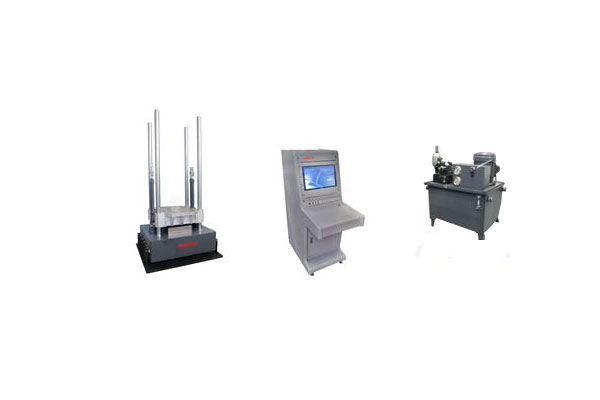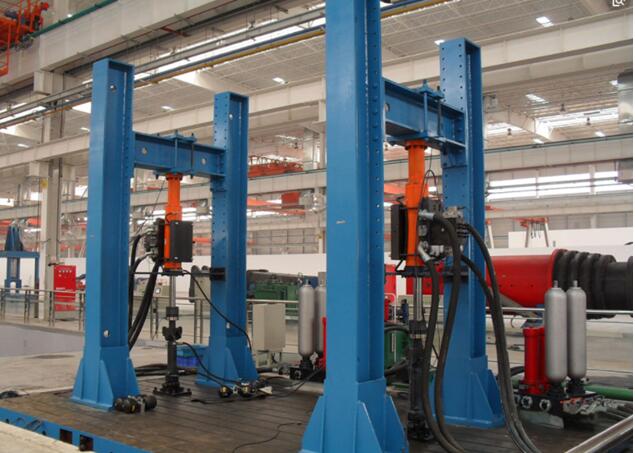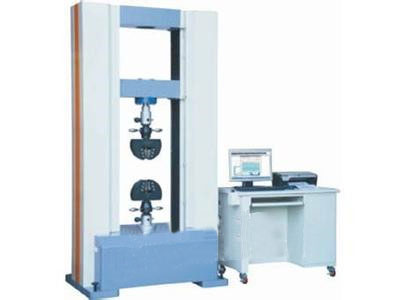1. Product Introduction:
WS-C-25 vertical hydraulic impact test system adopts hydraulic lifting, which has the advantages of smooth lifting and low noise. Air spring vibration reduction device reduces the impact on the surrounding environment. The high-pressure hydraulic brake device is used to overcome the additional impact of mechanical brakes on the test sample, ensuring reliable braking and no noise. At the same time, the WS-C-25 vertical hydraulic impact testing system considers multiple safety protection measures in its design, such as power-off protection function, safety interlock protection device, oil source standby unloading, etc., to ensure that the equipment will not endanger personnel, test specimens, and equipment safety due to accidental falls on the workbench during operation
The WS-C-25 vertical hydraulic impact test system can perform conventional and high-energy half sine wave impact tests, meeting standards such as GB/T2423.5-95, GJB150.18A-2009, GJB360.23, GJB548B-2005, IEC68-27-2008, etc
2. Features
1. Platform functional features
High performance aluminum alloy countertop: The optimized design of the aluminum alloy countertop has high stiffness, high first-order resonant frequency, low noise, and small high-frequency clutter
Automatic control of lifting height: digital lifting height feedback control system with high accuracy and good repeatability
Reliable brake system: built-in hydraulic brake mechanism to avoid secondary impact and provide a safer positioning platform
Multiple waveforms: replace different waveform generators to perform regular half sine, back peak sawtooth, and trapezoidal waveforms
Easy to install: The equipment comes with a high-performance buffer isolation device, which does not require a dedicated foundation and is easy and reliable to install
The large mass base designed according to the impact principle can effectively absorb clutter and avoid resonance
Multiple protection functions ensure the safety of testers, subjects, and equipment
2. Functional features of measurement software
Control system based on WINDOW 7 and above
It has a measurement range setting function, effectively improving signal resolution
Automatic gain adjustment, FIR digital infinite filtering
It has automatic parameter measurement function for impact waveform, which can automatically display parameters such as peak impact acceleration, pulse width, and speed change
It has single and continuous acquisition functions
With historical record display, storage, maximum, minimum, and average value statistics functions
Provides database management functionality to automatically save and load collected parameters; Save and reproduce measurement data
The collected data can form test reports and Word documents, making it convenient for users to print impact curves and create later documents
A comprehensive measurement system: the system has various waveform tolerance bands in memory, which are easy for users to adjust and apply. After completing the experiment, an automatic test report is generated. Provide standard tolerance bands such as GB/T2423.5-95, GJB150.18A-2009, GJB360.23, GJB548B-2005, IEC68-2-27-2008, etc
III. Technical Parameters
4. Working principle
The structure of the WS-C-25 vertical hydraulic impact test system is shown in Figure 3. It lifts the worktable to the set height by hydraulic drive and cylinder lifting, with low-pressure oil supply for the lifting part and high-pressure oil supply for the braking part. Its working principle is that the hydraulic system supplies oil to the lifting cylinder. After lifting the table and the test sample to the desired height, the brake oil circuit is opened, instantly locking the table. Then the hydraulic system changes direction, and the lifting cylinder piston rod descends. When the lifting cylinder piston rod descends to the lowest point, the hydraulic system stops supplying oil, the locking oil circuit is released, and the table falls freely. It collides with the waveform generator installed on the base, generating an impact waveform. The sensor installed on the table collects the waveform signal generated by the impact and transmits it to the analysis software, which displays it on the computer monitor. At the same time, the worktable will rebound, and the braking device will instantly activate to lock the worktable, avoiding secondary impact and completing the first impact test




